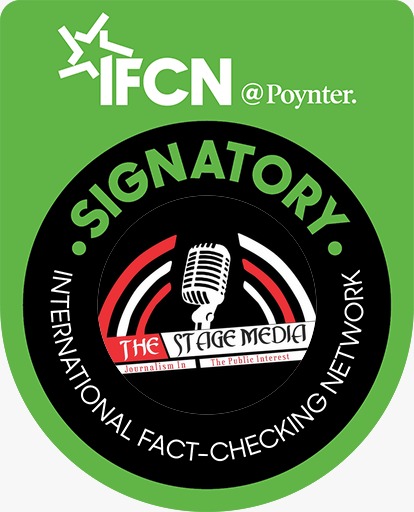
by
Liberia’s Freedom of Information (FOI) Act was signed into law on September 16, 2010. It grants everyone the right to access public records and information. The law fulfills provisions guaranteed by the Universal Declaration of Human Rights and the African Charter on Human and People’s Rights and the Liberian constitution to have access to public information.
This article is not a comprehensive explanation of the FOI legislation but aims to assist readers in understanding the advantages of the law to everyone. Please keep in mind that this publication is based on the Freedom of Information Act, the Carter Center’s citizen guide to FOI legislation, and frequently asked questions.
What kind of information can I request?
Any kind of information may be requested, whether it is in written, printed, audio, visual, or electronic form. Specifically, this includes any document that has been created, received, utilized, controlled, and/or held by any government agency or private organization that distributes or receives public money. They include details regarding an agency’s operations, such as its activities, budgets, and expenditures – how much money was received, spent, and on what – agency policies and decisions, as well as the rationale and explanation for the decision, statistical data, administrative staff manuals laws, rules, and regulations legislation and regulations.
How can I learn where to obtain information?
The FOI legislation requires all public authorities to develop and maintain a user-friendly and publicly available “publication scheme” that contains comprehensive information about their basic duties, the nature of their activities and operations, and the kinds of documents/information they possess.
More specifically, the publication scheme should include:
- Contact information for the authority’s information officer;
- A clear description of the agency’s organization, function, and powers, as well as an explanation of how it makes decisions and discloses the information;
- The location and types of categories of documents and information that the agency holds;
- And procedures for accessing documents or information.
If you are unsure which authority has the information you want, you may consult the publishing scheme, contact the information officer at the agency you believe holds the information, or simply submit your request with the agency. If you submitted your request in the incorrect location, the agency is obliged to transfer it to the right agency. The information officer is responsible for assisting you in submitting requests and receiving information.
Can I obtain information without needing to file a request?
According to the legislation, some information must be made accessible to the public without the need to request information, according to the legislation. Information that is made accessible without the need for a request is termed “automatically published” or “proactively disclosed,” information and public bodies are obliged to make this information available through a website or physical publication. The types of documents subject to the automatic publication include legislation, existing policies, procedures and rules, and budgets.
How can I file a request for information?
You may submit a request for information in writing via electronic mail, verbally, or by any other means permitted by law. However, the request should be detailed enough to allow the public agency or private organization to readily identify the material you want. If this is not done, the public or private organization should engage with you to explain what information you are seeking.
You are not required to give a reason for requesting the information. The agency should not inquire as to why you want the information or how you intend to utilize it. You own the public information. You may submit a request for information to the public or private organization that you believe has the information you want. It is up to that agency or entity to transfer the request if they do not have the required information and to notify you of where they have moved your request. Requesting information should be as simple as possible, with no paperwork or formalities required. If you need assistance, the agency’s information officer is available to help. As mentioned in the preceding section on automatic publishing, certain information may already be accessible without the need to submit a request.
Will I be charged for the information?
The FOI Law mandates that applications for information and searches be free of charge. The required papers are also available for free viewing. If you want a copy of the document, however, they may charge you for the actual cost of reproducing the requested material, such as photocopying, transcribing, scanning, or other kinds of reproduction. If you believe you were overcharged for the reproduction of the requested material, or if the agency attempted to charge you for anything else, you may seek an internal review of the decision. During an internal review, a senior official or review body will examine the fees imposed to see if they are legal. If you are still dissatisfied, you have the option of filing a complaint with the information commissioner. It costs nothing to inquire for information. Only the actual expenses of recreating the documents you request may be charged to you.
After filing a request, what should I expect to happen next?
Once you have submitted a request for information, the agency must begin processing it. Each agency may establish its own internal processing rules, but in general, the process starts with the agency noting the date your request was received, confirming receipt of your request, evaluating the request, and deciding if the information you want is kept inside the agency.
In most cases, upon receiving a request for information, the information officer or other designated public servant should:
- Provide you with written confirmation that your request for information has been received and tell you the maximum number of days it should take to respond to your request.
- Check to see whether it has the information you’re looking for, and if not, send your request to the appropriate organization.
- Give you one of the following responses: inspection or copy of the requested information written rejection of request notification of request transfer.
When will I receive a response?
Within thirty (30) calendar days, the agency must respond to all requests for information by post, e-mail, or hand delivery. If the agency can demonstrate good cause, it may extend the deadline for replying once. The one-time extension is for a maximum of thirty (30) days. The agency must accept your request and respond within 30 days, or document. According to the legislation, if the agency does not have the information you requested, it may transmit your request to the appropriate public agency or private business once within fifteen (15) days. If the agency to whom your request was moved does not have the information you need, your request may be transferred one more time, but it must be transmitted within ten (10) working days (approximately two weeks) after receipt. The agency moving the request must notify you where the request has been moved each time it is transferred, up to a maximum of two (2) times.
Can my request be lawfully denied?
Yes. According to the FOI law’s “exemption clause,” a request for information may be rejected ONLY if the material sought comes under one of the exclusions listed in the FOI legislation and the damage of revealing the requested information outweighs the public’s interest in viewing the document. Except in the case of transfers, all rejections must be in writing, provide a rationale for the refusal, and be sent to you within thirty (30) calendar days of the day the request was submitted.
What are the exemptions included in the FOI Act?
According to the Liberian Freedom of Information Act, a document, information, or record is excluded from public access ONLY if its publication will cause damage or significant harm to:
- National security, defence, or international relations
- Criminal Investigation
- Trade Secrets
- Privileged communications
When it would be an unreasonable revelation of personal information, a document is excluded from the general right of access to information. Your request will be rejected only if the material comes under an exemption and the damage of disclosure outweighs the public interest. In most cases, personal information is excluded from dissemination. To meet the public interest test, the agency must demonstrate the following: the requested information falls under one or more of the exemptions listed in the FOI Act; disclosure of the information will or is likely to cause injury or substantial harm to the interests protected by the exemptions, and the harm to be caused is greater than the benefit to be gained if the information is provided.
What if I am not satisfied with the agency response or the agency does not respond?
If you are still dissatisfied, you have the right to file an appeal with the Independent Information Commissioner. The information commissioner is obliged to examine your appeal request and make a final judgement. It is essential to remember that you do not need an attorney or a lawyer to request an internal review or to file an appeal with the Independent Information Commissioner. Throughout the appeals process, the agency must demonstrate that its judgement is lawful under FOI legislation. If your request is rejected due to an exemption, the agency must demonstrate that disclosing the material you sought will cause significant damage to the public that outweighs the benefit.
What if I am still not satisfied?
If you are still not satisfied with the Information Commissioner’s judgement, you have the right to seek judicial review before the Civil Law Court in Montserrado County and the Circuit Court in the county where the public agency or private business is situated.
Note: The researcher produced this media literacy article per the 2021 Kwame Karikari Fact-checking Fellowship in partnership with the Center for Media Studies and Peacebuilding to facilitate the ethos of truth in journalism and enhance media literacy in the country.




